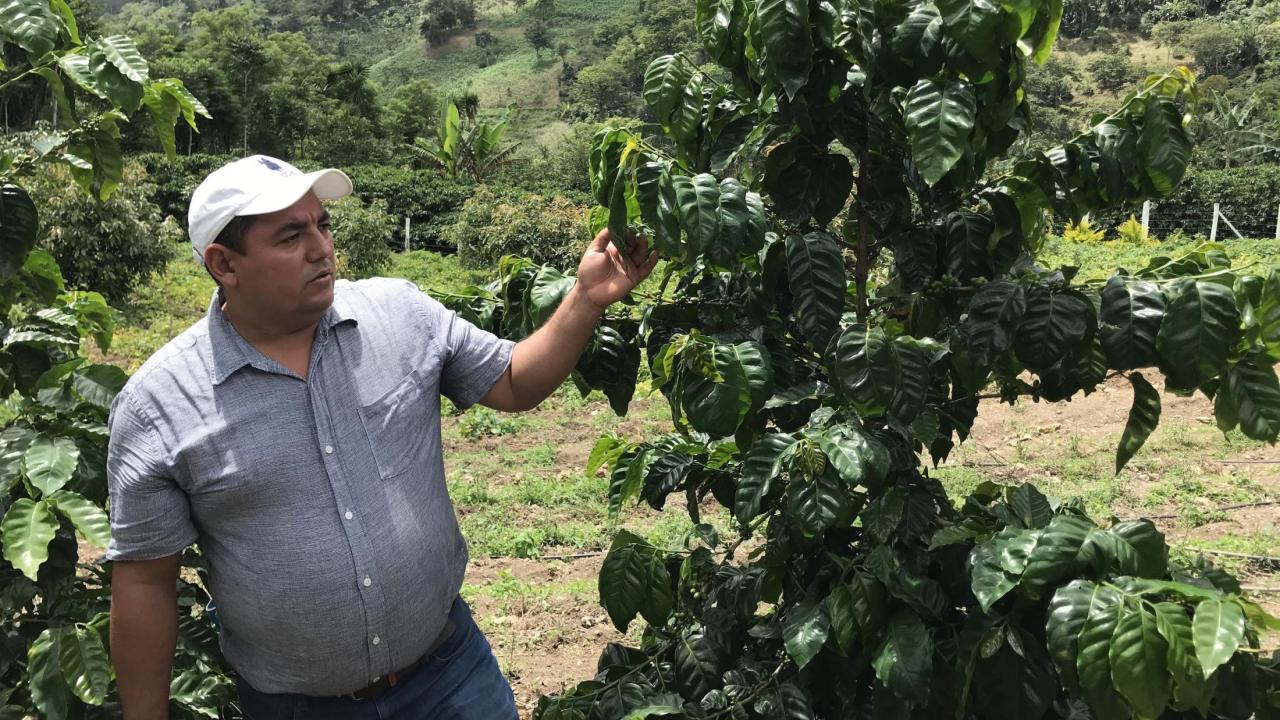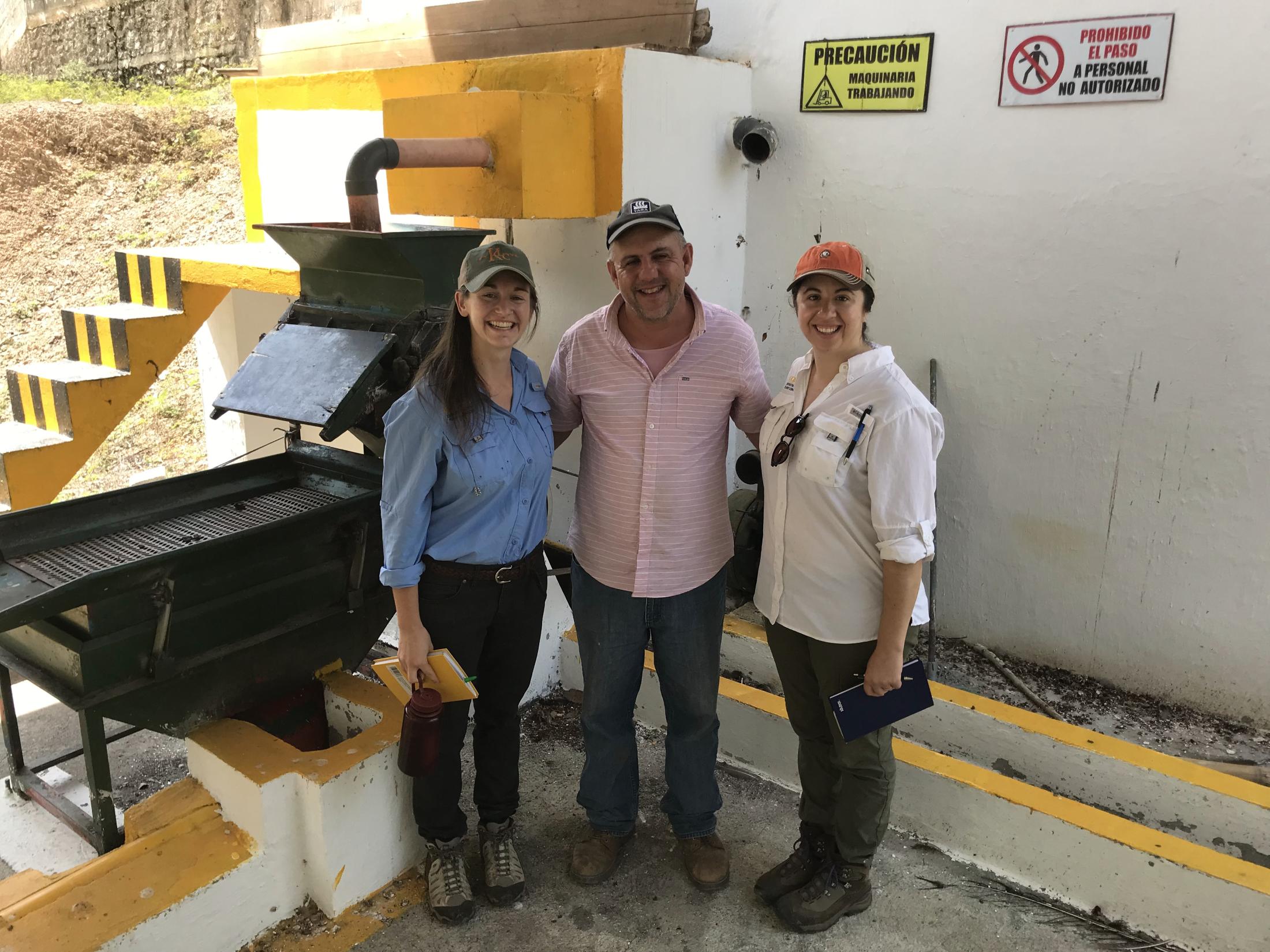
Lisa Artuso’s Jastro Research Award Identifies Coffee Sector Research Needs in Guatemala
The SUV rounded the turn and came to a stop. Ahead of us, the farmer got out of his pick-up truck and motioned for us to meet him outside. We stood by a tree as he told us about the community below and his farm, which stretched across the valley. Coffee plants dotted the steep hillsides - organized neatly in rows. Evie, my research partner, frantically took notes and peppered our host with questions about the size of the farm, varieties of coffee planted before we returned to our cars for the remainder of the trip down to his farm. Our days were filled with visits like this during the summer of 2019. Between June and September, I was a part of an interdisciplinary research team conducting a research needs assessment for smallholder coffee farmers in Guatemala. Most days were spent climbing up and down coffee farms, working to keep up, ask questions and understand the realities coffee producers faced.
Under the leadership of Dr. Patrick Brown of UC Davis and in collaboration with the UC Davis Coffee Center, the research needs assessment was conducted by myself and my research partner, Evie Smith (IAD ‘19). The objective of the research needs assessment was to understand the major agronomic challenges faced by producers and document information pathways and decision-making criteria of coffee producers across at least two departments in Guatemala. Partnerships were developed with Disagro, a Guatemalan agro-input company, and Caravela Coffee, a green coffee importer/exporter to reach producers and conduct on-farm interviews. Both organizations provide technical assistance to farmers and were interested in collaborating on the research project. The research was designed to be interdisciplinary and involve private sector partners so that findings would be informed by both agronomic and social science needs and informed by private sector extension challenges. We conducted Interviews across five departments of Guatemala, including Sacatepéquez, Chiquimula, San Marcos, Huehuetenango and Chimaltenango. We conducted 62 interviews, including 34 individual farmer interviews, one farmer focus group, six cooperative interviews, 20 key informant interviews, and a coffee sector round table.

In order to collect data on the identified research objectives, we used a combination of needs assessment methodologies drawn from qualitative data collection and analysis methods in sociology, rapid rural appraisal, and community-based participatory research. We collected qualitative and quantitative information through field site visits and interviews, which were then analyzed using qualitative research data methods and software. The final field guide was organized into seven sections with question topics and prompts that were used for interviews. The topics included the history and farm background, annual management practices, decision making, technical assistance, innovation and experimentation, processing and finally, markets/marketing. To analyze the interviews, we collaboratively created a draft codebook to capture both agronomic and behavioral codes to capture the range of responses and information needed for interdisciplinary analysis. Coding took place over three months and culminated in the analysis and writing of a final report to present findings to funders and stakeholders involved in the project.
Some key findings from the survey include the following research and information needs:
- Climate change is impacting the cultivation of coffee in Guatemala. Producers identified production challenges relating to climate change, including unfavorable and unpredictable changes in rainfall patterns and increased incidence of pests and diseases as some of the most pressing production challenges that they face. Research and implementation of strategies to increase farm resilience in the face of these challenges will increase the sustainability of the Guatemalan coffee sector.
- Farmers require more information about best practices for production of specialty coffee.One of the most viable strategies for small and medium coffee farmers to achieve profitability on their farms is to secure buyers who will pay premiums that cover small and medium coffee farmers’ cost of production in the specialty coffee market. In order to do this, farmers require more information about best agronomic and processing practices for the production of high-quality coffee.
- Effective communication strategies are needed for coffee technical assistance provision. A good deal of information is being collected about coffee production by various actors in the coffee sector in order to address threats to production, improve agronomic practices and understand market demands. However, often this information does not reach coffee farmers, or is not communicated with farmers in such a way that they are able to effectively use it.
- Agribusiness management training is needed for farmers.Because of the instability of the coffee market and unpredictability of on-farm production, many small- and medium-scale farmers have the tendency to manage their farms thinking about short-term rather than long term investments. It is important to work with farmers to strengthen agribusiness planning and management capacities in order to increase their ability to make desired production and processing investments.
- Large scale migration of agricultural laborers to the United States has created a shortage of labor for coffee production in Guatemala.As a result, producers are forced to change the management strategies they use on their farms to reduce the amount of labor used. These changes include reductions in pruning, shade management, and fertilization as well as delays in harvesting ripe cherries. All of these management changes impact the quality of coffee produced, and therefore have negative impacts on farm profitability.
The findings above were made all the more personal and real by the visits with farmers. Coffee producers are passionate, smart and concerned about these threats and it was an honor to listen to and capture their experiences through this research project. The findings from the interdisciplinary research needs assessment funded by the Jastro Award and other UC Davis funding sources will inform future research design, including a farm-based agronomic study and a social science investigation to explore coffee farmer behavior and adoption of best agronomic practices. Funding for this research was possible thanks to the Henry A. Jastro Graduate Research Award, The Global Fellowships for Agricultural Development (GFAD) program (formerly RIFA), the Grieshop Family Fellowship Award and the Patrick H. Brown lab at UC Davis. If you have any questions about the research findings and reports, please contact Lisa Artuso (ljartuso@ucdavis.edu).